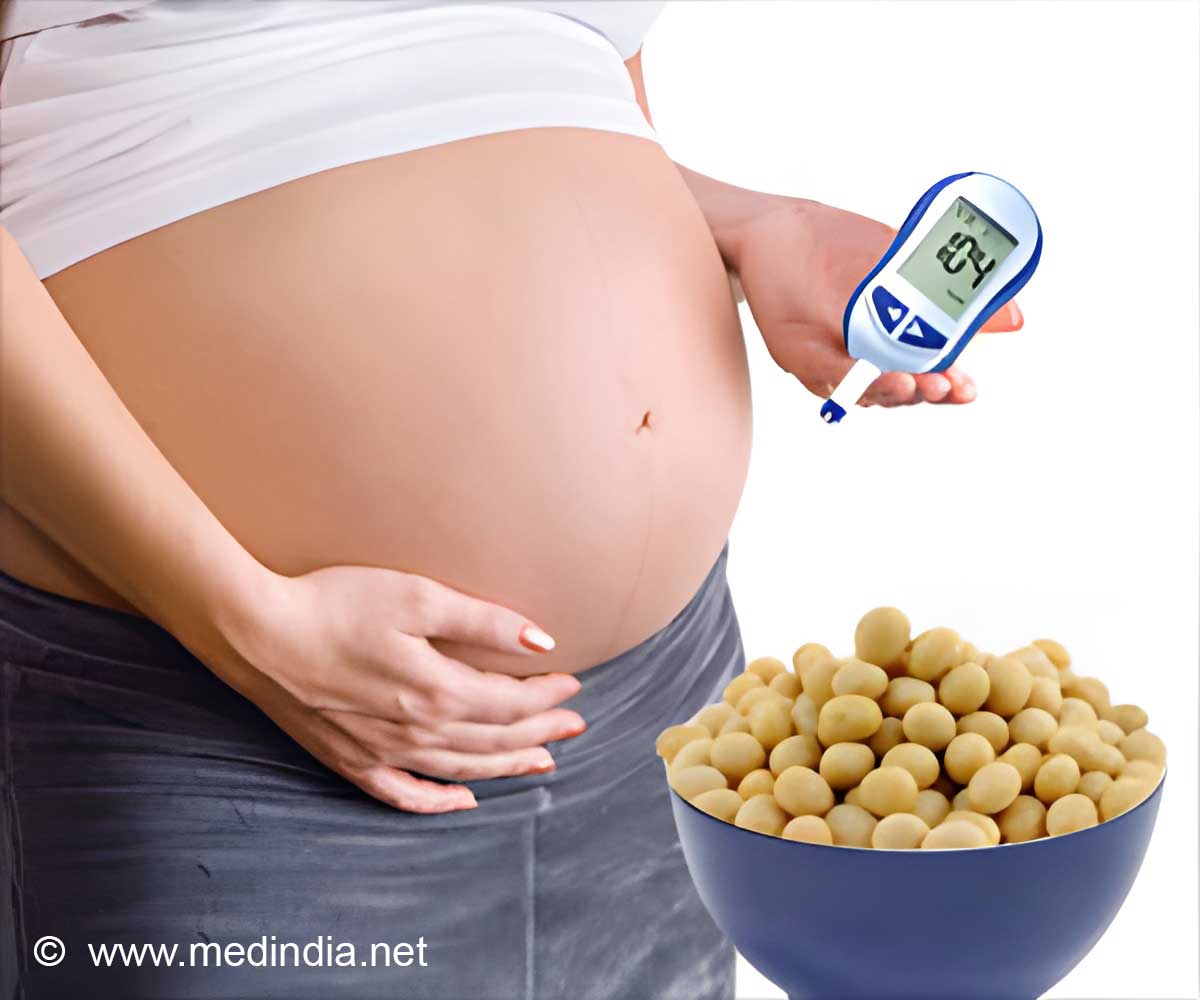Pregnant women with gestational diabetes can consume a diet rich in soy to keep their blood sugar levels under control and reduce complications during delivery.

Soy or soya bean is a legume and a good source of plant protein. Soya beans are rich in manganese, selenium, copper, potassium, phosphorus, magnesium, iron, calcium, vitamin B6, folate, riboflavin (B2), thiamin (B1) and vitamin K. Foods rich in soy include soy milk, tofu, edamame (Japanese soybeans), roasted soy nuts, soy butter and soy flours. Fermented forms of soy include miso, tempeh and fermented tofu.
Researchers at the Arak University of Medical Sciences in Iran conducted a study to examine the effects of soy intake on the metabolic status of women with Gestational Diabetes Mellitus (GDM).
Researchers analyzed 68 women with gestational diabetes in a six-week clinical trial. All the women were in their 26th week of pregnancy during the start of the study and were followed until their delivery. Participants were randomly separated into two groups namely a soy group and a control group.
Participants in the soy group were given a diet containing 70% animal protein and 30 % soy protein. The participants in the controlled group were given a diet containing 35% animal protein, 35% soy protein and 30% plant protein. The participants followed the diet regimen for a period of six weeks.
They also found that soy protein consumption led to the significant reduction in blood sugar and insulin levels in the soy group, compared to the other group. The incidence of newborn hyperbilirubinemia and newborn hospitalization also lowered in the soy group.
Reference:
1. Mehri Jamilian and Zatollah Asemi, Department of Gynecology and Obstetrics, School of Medicine, Arak University of Medical Sciences, Arak, Iran (M.J.), Research Center for Biochemistry and Nutrition in Metabolic Diseases, Kashan University of Medical Sciences, Kashan, I.R. Iran, paper titled “The effect of soy intake on metabolic profiles of women with gestational diabetes mellitus,” Journal of Clinical Endocrinology & Metabolism, DOI: http://dx.doi.org/10.1210/jc.2015-3454Source-Medindia















